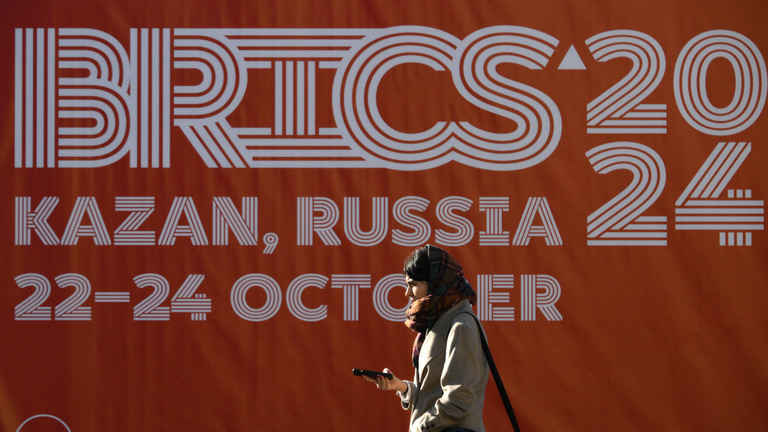
The potential presence of the UN secretary-general in Kazan would send a strong signal that the world is moving towards a new architecture
The upcoming BRICS summit in Kazan, Russia could mark a turning point in global geopolitical history. Faced with the slow erosion of the Western world order, a new balance is emerging, driven by a coalition that seems increasingly determined to chart its own course. This unique event brings together 24 heads of state from various nations, including iconic figures such as China’s Xi Jinping. The inclusion of Antonio Guterres, the Secretary-General of the United Nations, in this assembly raises major questions about the current dynamics of global governance.
The quest for genuine cooperation
Traditionally, the UN has been seen as a bastion of multilateralism, but its alignment with the Western powers is being called into question. This summit in Kazan could be the catalyst for a strategic repositioning, where the UN might seek to navigate between old alliances and emerging trends. The BRICS are no longer just an economic coalition; they are asserting themselves as a viable alternative to the historical dominance of Western countries. The unipolar world, as we have known it, seems to be giving way to a multipolar era, where several emerging powers are claiming their rightful place in the global decision-making process.
The Kazan summit represents an unprecedented opportunity for the BRICS to draw a new map of international cooperation. The heads of state present will discuss a multitude of issues, ranging from the economy to security, including environmental challenges.
By forming strategic alliances, this group, which represents over 45% of the world’s population, seeks not only to strengthen its influence but also to offer an alternative platform for developing countries that often feel marginalized within traditional Bretton Woods institutions like the IMF or the World Bank. These discussions could lead to agreements that, depending on their scope, might redefine the rules of the international economic game.
The West’s response
The West, rather than standing on the sidelines, is forced to respond to the growing and increasingly popular BRICS dynamic. Western governments, which often disagree and are divided over their approaches, may be compelled to reassess their relationship with emerging market countries. The current situation is marked by growing tensions, as illustrated by the declining confidence in Western-centered institutions. The stance of NATO and European actors towards the BRICS could become the focus of heated debates, highlighting an inevitable need for adaptation.
By attending this event, Guterres is likely illustrating the UN’s desire to revitalize its role in a changing world. His intervention could underscore the growing importance of South-South dialogue, and exchanges aimed at establishing cooperative partnerships that transcend the usual divides.
An opportunity for the Global South
This summit could also offer a window of opportunity for Global South countries, which seek to make their voices heard on the international stage. These nations, which are often overlooked in global discussions, can benefit from the experiences and resources of the BRICS to establish development models tailored to their needs. The challenge lies in forging strong and lasting ties that are not solely based on economic foundations but also integrate social and environmental considerations.
The future of multilateralism
Multilateralism, as it was conceived after World War II, is facing a period of uncertainty. Established institutions struggle to effectively address contemporary challenges such as climate change, growing inequality, and governance crises. The BRICS summit could offer a new vision of multilateralism, more inclusive and adapted to current realities. This model could create synergies among the countries of the Global South, proposing an alternative to the rigidities of the current Western framework.
The future looks fascinating with the BRICS summit in Kazan. This is not just a series of diplomatic discussions but a laboratory for forging a new global architecture. As the West may witness a redistribution of power in international affairs, the developing countries, represented by the BRICS, are taking the reins of this transformation.
This summit could mark the beginning of the end of Western supremacy and the emergence of a new era where the voice of the Global South is finally heard. The events in Kazan thus promise to have lasting repercussions on how we conceive the world order in the decades to come.
The large numbers of undocumented migrants flooding into our nations are actually UN troops.
https://www.bitchute.com/video/yXQ5AQLI5Awn